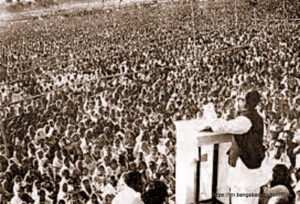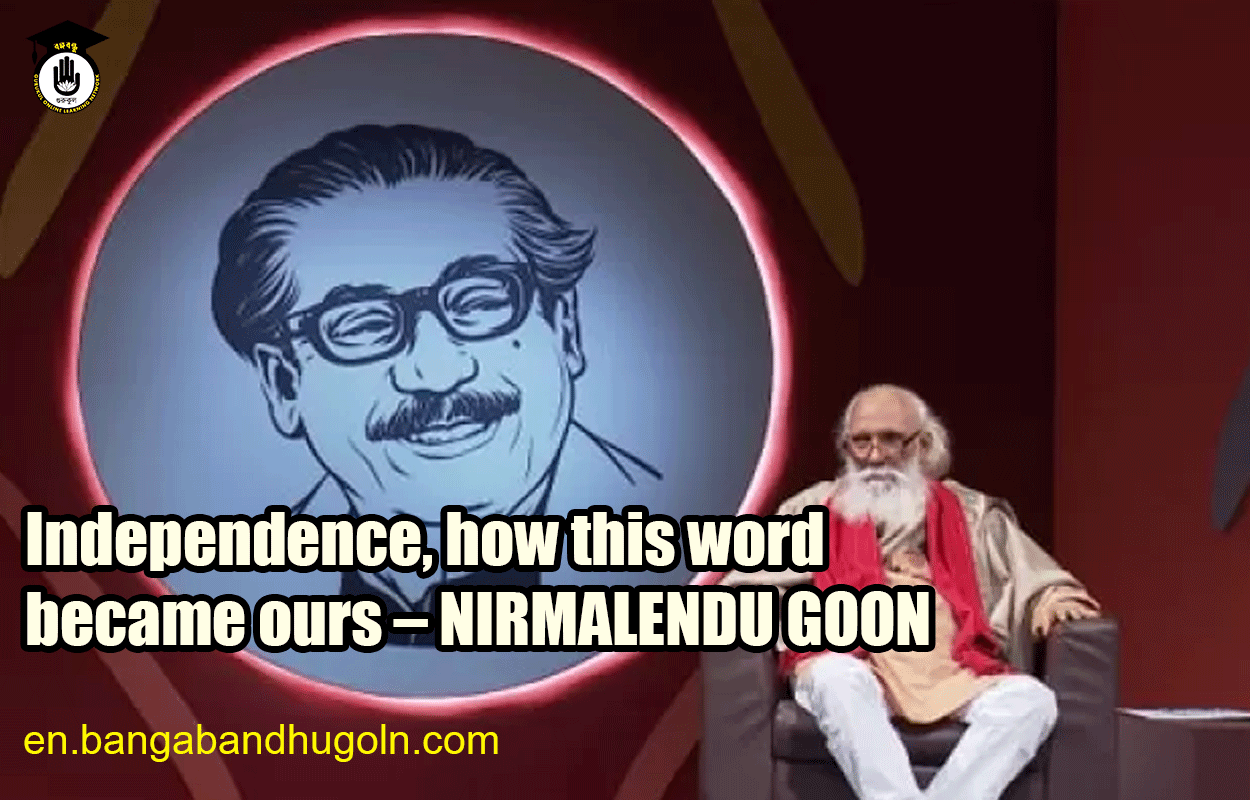The very celebrated poems is “Swadhinata,” which translates to “Independence.” is a poem of “Nirmlendu Goon” a renowned Bengali poet, who is known for his works that depict the struggles of the working class and the downtrodden. The poem beautifully captures the essence of freedom and how it became an integral part of our lives.

The word “independence” holds a special place in our hearts. It symbolizes the freedom to make our own choices, to pursue our dreams, and to live life on our own terms. But the road to independence was not easy; it was a long and hard-fought battle that claimed countless lives.
In his poem “Swadhinata,” Nirmlendu Goon pays tribute to those who sacrificed their lives for the cause of independence. He writes about the struggles of the freedom fighters, the pain and suffering they endured, and the ultimate victory that they achieved.
The poem begins with the lines, “Independence, how this word became ours, from the bloody wound of the martyrs, from the tears of the mothers who lost their sons.” These lines set the tone for the rest of the poem, which is a tribute to the sacrifices made by the freedom fighters.
The poem goes on to describe the various phases of the struggle for independence. It talks about the protests, the hunger strikes, the marches, and the rallies that were organized to demand freedom. The poem also highlights the role played by the common people in the struggle. It talks about how they came together to support the cause of independence and how their collective efforts led to the ultimate victory.
Towards the end of the poem, Nirmlendu Goon speaks about the significance of independence. He writes, “Independence is not just a word, it’s the essence of life, the fragrance of freedom, the light of hope.” These lines beautifully capture the essence of what independence means to us.
In conclusion, Nirmlendu Goon’s poem “Swadhinata” is a powerful tribute to the struggle for independence. It reminds us of the sacrifices made by our forefathers and the importance of cherishing the freedom that we enjoy today. The poem is a reminder that independence is not just a word; it’s a way of life that we must all strive to preserve and protect.

Independence, how this word became ours – NIRMALENDU GOON
Composition of a verse is awaited,
raging, impatient yet pining millions waiting since dawn
at the groves of the ocean of people.
Wonders the rebel audience: ‘when will the Poet show up?’
Then,no kids’ park was hither.
Draped in trees and flowers this garden didn’t exist
nor this dizzy bleary afternoon.
How did that afternoon look that Day?
How did this heartland of Dhaka, now a kids’park
wrapped in benches, trees and floral beds look then?
Criminal hands are ready to wipe out, yes
every memorabilia of that Day. So, in this hurt field
sans the bard, now poets stand against poets
Meadows against meadows
Afternoons against afternoons
March against Marches…
O, the unborn baby, O, the rhymer of tomorrow,
swinging on the colorful cradle of the kids’ park,
in the days to come, you’ll know all. To let you know
I store this story of that profound afternoon.
This ground looked so dissimilar that day
No park, no floral gardenia—nothing as it looks like now.
Alike the one and unbounded sky, an empty land
dressed in grasses, green overlapping the green and
drifting unto the horizon.
The green within us longing for freedom
met the endless greenery of this ground.
With red scarfs bound on their foreheads and wrists,
came rushing to this ground the workers from the iron mills,
With yoke and plough on the shoulders the bare-bodied peasants thronged;
With arms grabbed from the police,the fiery youths joined.
With mortal ends in the fists and eyes radiant with dreams, assembled
the middle class, lower middle class, poor clerks, women, elderlies, whores, vagabonds
and leaf-pickers of your age swarmed here.
A verse will be read out. What a breathtaking eagerness
of the people! When shall the bard show up?
When shall he?
The endless struggles of hundred years halt,
The Bard walked in, reminding all the vigorous steps of Tagore
up on the people’s stage he stood erect.
In the twinkling of an eye, waters stormed on to the boats,
the cords of hearts started swinging,
tidal waves quaked the ocean of people,
and all doors unbarred.
Who dares to tame his thunderous voice!
Rocking the stage beamed by the sunny rays of people,
the Bard read out his immortal verse:
‘Struggle this time is the struggle for our liberation,
Struggle this time is the struggle for independence’.
Since then the word ‘Independence’ has become ours
English version: Shafi Ahmed
Former Professor in English, Jahangirnagar University

See more:
